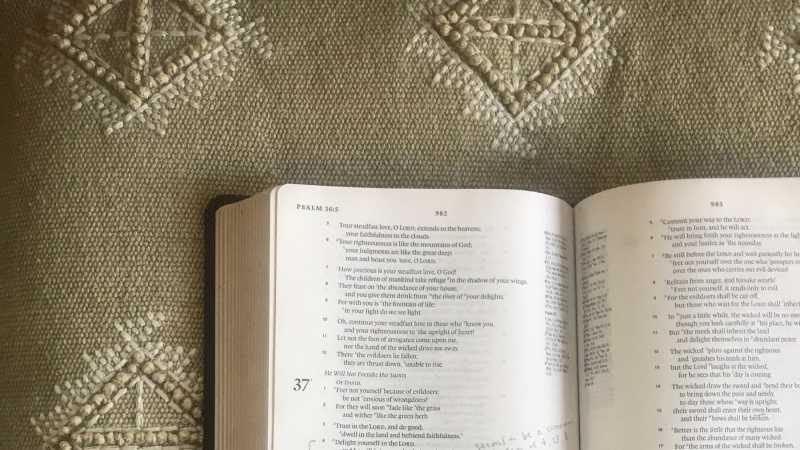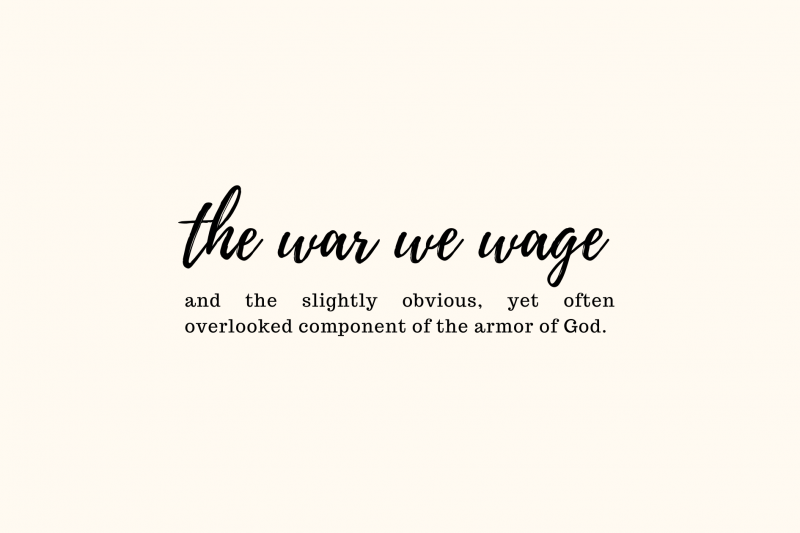“Delight yourself in the Lord, and he will give you the desires of your heart.” – Psalm 37:4
“Lord, I know you know what I want.”
Sometimes those are the only words I can muster as I begin to pray.
My prayer is always obvious on God’s end–of course he knows what I want. But sometimes, it’s harder to believe on mine.
When unanswered prayers span months and years, lies creep in over time. It’s easy to think that either (a.) God doesn’t actually know the desires of my heart or (b.) he doesn’t care.
So, I pray that prayer: “Lord, I know you know what I want,” as a proclamation of what I know to be true, even when my feelings don’t quite line up.
But it’s times like these that I struggle with Psalm 37:4. “Delight yourself in the Lord,” David writes, “and he will give you the desires of your heart.”
That sounds good and encouraging. But what about when I have desires that have been around for years, I’m delighting in the Lord as best as I know how, yet I don’t see these desires being fulfilled any time soon?
Many 21st century believers think of the “desires” mentioned in Psalm 37:4 as the desire that many Christian singles have: to get married. We tend to come up with a translation of our own that reads something like this:
“Delight yourself in the Lord, and he will ensure that you find a spouse.”
Sounds good, right? …until we hear of godly people who desire marriage but remain single. Suddenly our interpretive bubble is popped. Even if we expand the reach of the word “desire” to cover longings such as financial success, good health, or a sense of belonging, our modern-day translation of Psalm 37:4 still comes up short. Too many people live far too long without ever experiencing the desires of their hearts.
So, is the verse wrong? Or are we reading it wrong?
I’d argue for option #2.
Part of a Whole: Psalm 37 in Context
This verse is frustrating because we read it as if it exists in a vacuum. But in reality, it’s part of a whole, and we’ve GOT to look at the whole. This means reading all of Psalm 37.
From the start, Psalm 37:1-2 reads:
“Fret not yourself because of evildoers;
Be not envious of wrongdoers!
For they will soon fade like the grass
And wither like the green herb.”
(Click HERE to read the whole chapter.)
As you continue throughout the chapter, you’ll find words like ‘justice,’ ‘righteousness,’ and ‘wickedness’ repeated again and again–not exactly what you’d expect to surround the ever-famous verse on our heart’s desires.
I think it’s safe to say that King David was not writing about marriage to 21st-century singles 😉 He was writing to Israelite followers of God who struggled because the nations surrounding them lived wicked lives in complete opposition to God, yet they prospered. David assures them that the “evildoers” mentioned in verse 1 “will soon fade like the grass” (37:2).
The Israelites looked around themselves and saw no justice, no reward for living a righteous life. The Israelites were envious of the evildoers, and they struggled to see value in continuing a life lived for the Lord. If they could be prosperous without it, why choose the harder path?
After reading the whole chapter, the context is clear: The Israelites desire justice. It’s only right that the wicked be punished and the righteous receive their reward.
So when David says, “Delight yourself in the Lord and he will give you the desires of your heart,” he’s NOT saying, “Delight yourself in the Lord and he’ll give you whatever you want.”
He IS saying, “Delight yourself in the Lord, and he will bring justice, which is the desire of your heart.”
David can say this because (a) he’s writing to a specific group of people with a specific desire and (b) the law makes it clear that the Lord is a God of justice (i.e. Deuteronomy 32:4), so their desire is in alignment with God’s will. It can be stated with certainty that in the end, the wicked will perish and the righteous will be “preserved forever” (Psalm 37:28b). The Lord “will not forsake his saints” (Psalm 37:28a).
Those last three paragraphs are important to keep in mind as we transition to what this verse means for you and me today.
Ancient Lessons For Modern Christians
We may not be Israelites living in 1000 BC, but we have desires in our hearts nonetheless.
We know that justice, which was the desire of the Israelites’ heart, is ultimately promised by God. That made it easy for David to say without a doubt that God would fulfill their desires. However, this psalm is not a promise to all people of all time that he will give them what they want.
At face value, that’s not exactly fun to hear. But let’s look a bit deeper.
As I was reading commentaries on this passage, theologians made it clear that we can’t have the last phrase of verse 4 (“he will give you the desires of your heart”) without the first (“delight yourself in the Lord”). The order they are presented in is vital.
It’s easy to misread this verse as proof that God operates like a holy vending machine. But Charles Spurgeon writes, “Men who delight in God desire or ask for nothing but what will please God; hence it is safe to give them [whatever he or she pleases]. Their will is subdued to God’s will, and now they may have what they will.”
Spurgeon also makes an important clarification, saying, “Our innermost desires are here meant [in Psalm 37:4], not our casual wishes; there are many things which nature might desire which grace would never permit us to ask for; these deep, prayerful, asking desires are those to which the promise is made” (emphasis added).
Notice his distinction between casual wishes and innermost desires?
I’m sure the Israelites wished for many things–wealth, good social standing, lots of children, etc. All of these are good things, but these good things don’t last. By delighting in the Lord, the Israelites’ innermost desire (justice for the righteous and the wicked) was in line with the character and nature of God.
Surrounded by Good, Desiring the Ultimate
At risk of being cliché, I’ll admit that the desires of my heart are most apparent when sitting alone at church on a Sunday morning or showing up for a holiday Christmas party without a date…again. Also that one time that I 7th wheeled at a Bible study. 😉
Like the many 21st century Christians mentioned at the beginning of this piece, I’ve looked forward to being married since I was little–not because I’m afraid of being independent or because people have convinced me that my worth is “less than” without a husband. For as long as I can remember, I’ve simply longed to be a wife and a mom.
It would feel nice to say, “God has given me this desire, this desire is good, therefore he will follow through and give me what I want.” But like we talked about earlier–too many godly people long for marriage and motherhood, only to remain single. And when I read Psalm 37:4 in context, I learn that delighting in the Lord is not about doing the right thing and expecting God to give me what I want in return.
Remember Spurgeon’s distinction between casual wishes and innermost desires? I don’t think that marriage and motherhood is a casual wish–the Bible is clear that God places great value on these roles. But I think it’s safe to say that my desire for marriage and motherhood may be pointing to a deeper longing (an innermost desire, if you will) that will never be entirely fulfilled on this side of heaven.
There is a certain amount of intimacy experienced in being a wife and mom that is only surpassed by a relationship with Christ. I may feel as though marriage and motherhood would fulfill my desire for close, meaningful relationships when in reality, they only foreshadow the greater reality of intimacy with Christ.
Marriage and motherhood may be good, but they are not ultimate.
God may give them to me, and he may not. The uncertainty here often feels frustrating and nebulous…but that is as it should be. Unfulfilled longings make space for faith and trust.
Truth is, I may never stop wanting these good but not-quite-ultimate things. But in the meantime, the more I delight in the Lord, the greater my desire will be for that which is ultimate.
If you’re wondering what it means to “delight in the Lord,” think of it this way. It means growing in love for God and experiencing joy through your relationship with him. Remember, however, that “delight” is not about manufacturing a feeling of happiness or joy.
We have a connection between our minds and our hearts. Our love for someone or something grows only as we grow in knowledge of that person/topic/thing. It’s the same with God. Knowledge leads to delight. And we learn about Him by spending time in His Word, in prayer, and with wise people who know and love Him well. (Read Jen Wilkin’s Women of the Word for more on this.)
* * * * *
I’d love to hear from you in the comments below. What are your thoughts on God giving his people the desires of their hearts? Has your approach to this topic shifted in any way? How does Psalm 37:4 speak into your life today?
“Delight yourself in the Lord, and he will give you the desires of your heart.”
~ Psalm 37:4
Tags: Bible Study Biblical Interpretation Desires of Your Heart Exegesis Misquoted Scripture Prayer Psalm 37








I definitely needed to hear this today! Thank you, Sam! At the end of the day…I’m desiring Christ. My relationship with Him can be strengthened in marriage, but marriage will never fulfill my ultimate desire to be with Him!
So glad it came at a good time, Anna❤️ Also, I love that last line you wrote…so true and well said!
Thank you for sharing your story. I now understand this psalm far better than before. Like many women, while single, marriage was the first thing that came to mind in regard to the desires of my heart. This because a scripture is read proportionately and not within the full context of its meaning. Now widowed, had I understood this scripture in my singlehood as I do now, I would have been spared much anguish of spirit.
I’m so glad this post was helpful ❤️
I found this while asking God what it means to align my heart desires to His will/plan for me. I’m married and still feel like my hearts desire is yearning. I see on social media all the declarations of perfect love in relationships with soul mates and feel left out. My marriage has been just more time of struggle growing in faith and trust in God, feeling like I missed hearing Him correctly. Why am I not deliriously joined in my marriage, instead I’ve found brokenness in both of us, and once again am singley seeking God for healing, patience, purpose, etc. So like Israel, I am confused why those who don’t outwardly follow Jesus are more blessed than I who asked, begged, and devoted myself to living for Him? Your perspective agrees with what my answer has been, that I need to ask Him to align my heart’s desires with His to find the joy I’m yearning to for…
Suzanne, I’m so grateful that this post was helpful for you. Your comment reminded me of Galatians 5 which talks about the fruit of the Spirit. I just prayed that the Lord would grow the fruit of joy in you as you learn to “keep in step with the Spirit” — and that this joy would even overflow into your marriage ❤️